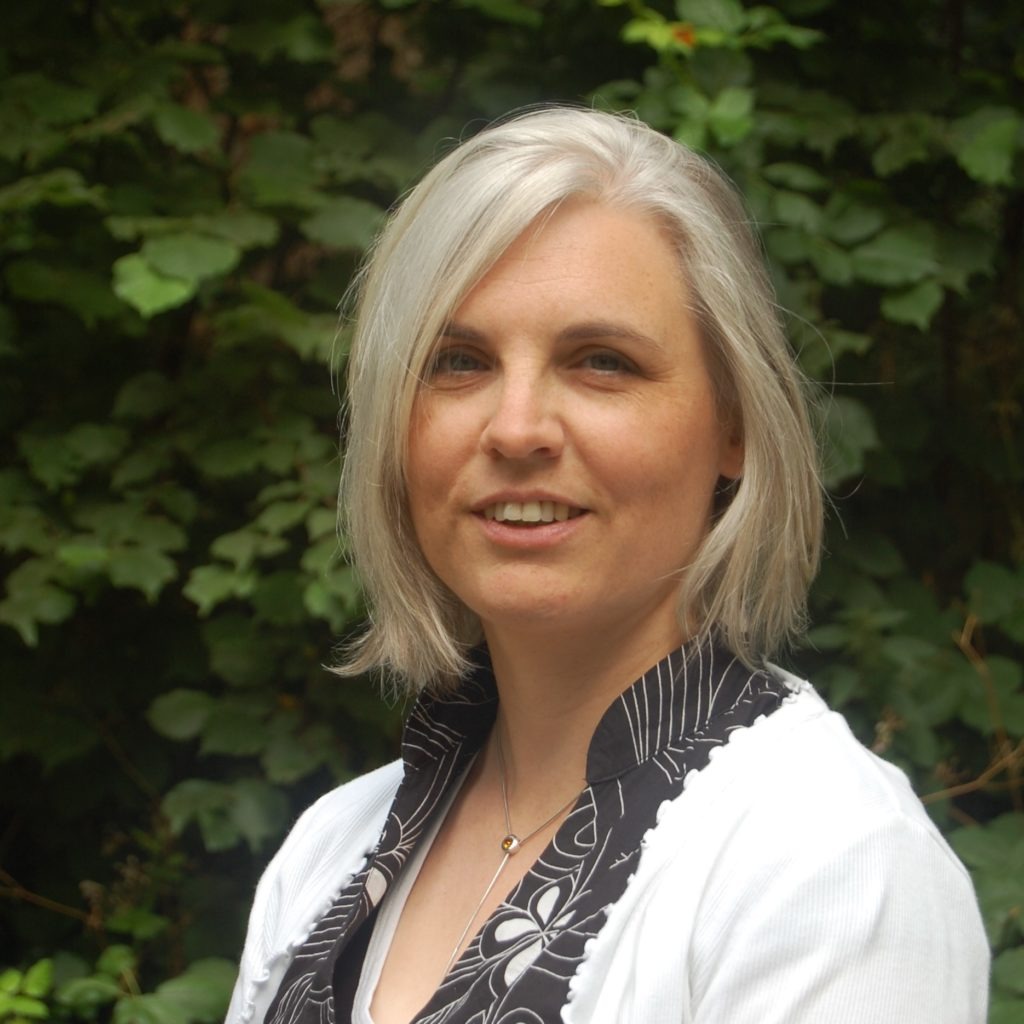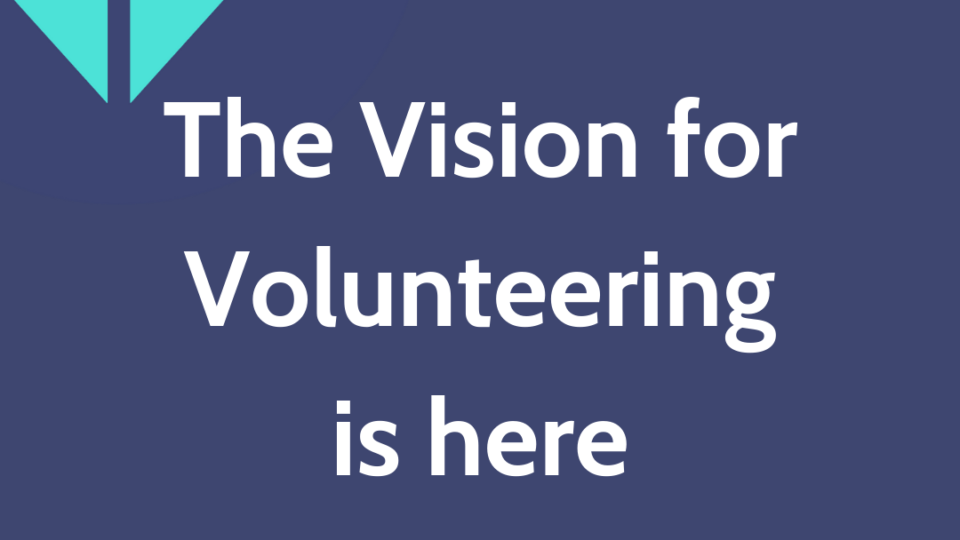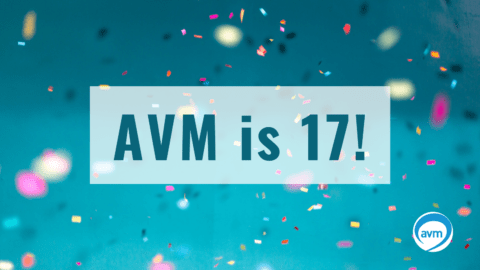by Ruth Leonard
It might be difficult for any of us to say where we’ll be in 10 years time – although I am confident that in 10 years time, volunteering will still be part of my life. I have been involved in volunteering for several decades and my day job is Head of Volunteer Development and Operations at Macmillan.
I volunteer as the chair of the Association of Volunteer Managers, one of the partner organisations for the Vision for Volunteering and as a compassionate neighbour with my local hospice – and in the past I’ve been a Samaritans volunteer, a community mediator and a helpline volunteer with a national association of people abused in childhood where I was also as trustee. I’ve also held board roles with prisoners family and friends, as well as Rushey Green Timebank
Empowering people to make a difference in their local communities and bring about change using their skills and assets – that is why I am excited and passionate about volunteer management
Like all of us here today, I care deeply about volunteering and about the positive impact it can have. Volunteers strengthen communities. Whether it’s a local community, a religious or cultural community, or a community of those with shared interests, great things happen when people get to know each other and work together on things they care about.
As you all know volunteering is personally beneficial to every individual who volunteers. That personal benefit should be celebrated as much as the wider good for society – without volunteering, there are fantastic people I would never have met, powerful experiences I would never have had, and valuable skills and life lessons that I would never have learned. I know that many of us here today – and indeed, millions more across the country – will feel the same.
It’s no secret that it has been a challenging couple of years. But one thing it has demonstrated is that volunteering and community engagement is and remains a universally strong spirit. People, without being asked to step in, came forward to give their time and share their skills, to provide practical assistance, comfort and support; ultimately creating a sense of resilience and strength.
The power of volunteering, people giving their time to others whatever this might be called – mutual aid, social action, neighbourliness, whatever name describes the action, has been central to enabling support during the pandemic and, quite rightly, has been widely celebrated.
But where do we go next? In the new Vision for Volunteering, we make five statements about what volunteering needs to look like, and how those who volunteer need to feel about their activity or role, by 2032 or sooner.
Number one – we want a future in which volunteering is further ingrained in the collective psyche, is part of everyone’s life, and in which it’s always easy to find ways to make a difference.
Number two – we want a future where the power of volunteers and communities is recognised and supported, allowing everyone to engage within their community, identify what matters to them and build the future they want to see.
Number three – we want volunteering to be accessible and welcoming to everyone, everywhere, so that the benefits of volunteering are equally distributed.
Number four – we want a future where collaboration is a natural, fluid, flexible and spontaneous part of volunteering, with collaboration actively encouraged and barriers to it tackled.
And finally, we want experimentation, learning and flexibility to be a natural, constant part of volunteering, not just a temporary bolt-on in times of crisis or Covid.
The Vision for Volunteering is, very deliberately, not a finalised action plan suggesting how we achieve those things.
Instead, this is the start of the next chapter in a conversation about what is needed to create that diverse, innovative, ambitious and person-centred future, by 2032.
We’d love to hear your voice in that continuing dialogue – please go to the Vision for Volunteering website and sign up to hear more. Please visit our stand at the expo today. And of course, please let us know what you think on social media, using the hashtag #VisionForVolunteering.
It might not always be easy to be optimistic, especially with everything going on in the world, but I’m certainly optimistic that volunteers will continue to make the world a better place. And optimistic that by 2032, we will have made those five ambitions a reality.
About the Vision for Volunteering
- Vision for Volunteering promotes a conversation about future of volunteering
- Contributions from more than 300 organisations have been received
Volunteering needs to embrace experimentation, actively encourage collaboration, and ensure that it is more diverse and inclusive, in order that the impact volunteers make across the country can continue to grow, according to the Vision for Volunteering.
The Vision also urges organisations to recognise the power of volunteers and communities, and to ensure that everyone is able to engage with their community and build the future they want to see. This requires power to be devolved to individuals and communities, it argues.
The Vision for Volunteering movement, led by NAVCA, NCVO, Volunteering Matters, the Association of Volunteer Managers and Sport England, today (Friday 6 May) begins the next stage of its conversation on what volunteering needs to look like, and how this will make volunteers feel about their roles, by 2032.
Over the last few months, the Vision has received feedback and input from a total of more than 350 people – from CEOs and volunteer managers to volunteers and community workers – who together represent more than 300 organisations from the charity, public and private sectors. The evidence gathering phase was supported by the Department for Digital, Culture, Media and Sport (DCMS).
A launch event for the Vision takes place at noon today at Volunteer Expo Live at Birmingham’s NEC.
Emma-Jane Gill, an ambassador for youth social action campaign #iwill, is speaking at the event. She says: “I’d describe myself as being in a long-term relationship with volunteering, and it’s safe to say that I would not be where I am today without it. Being able to give my time and expertise flexibly and connecting with a wide range of people through different kinds of voluntary work has been the source of great enjoyment, fulfilment, and direction – and has helped me make a start in the world of work.I hope that the Vision for Volunteering can contribute to many more people having a range of opportunities to make volunteering a part of their life.”
Ruth Leonard, chair of the Association of Volunteer Managers, who will also speak at the event, says: “Today’s publication is deliberately not the delivery of a finalised action plan – this is the start of the next chapter in a conversation about what is needed to create a diverse, innovative, ambitious and person-centred future for volunteering. I know that many are already working on the principles outlined in the Vision or are keen to take them on board – whatever stage you are at, we hope that the Vision and its insights can enable you and we’d love to hear your voice in this continuing dialogue.”
Five key themes
The five key themes for the future of the volunteering ecosystem are: awareness and appreciation; power; equity and inclusion; collaboration; and experimentation. The Vision says:
- We want a future in which volunteering is further ingrained in the collective psyche, is part of everyone’s life, and in which it’s always easy to find ways to make a difference
- We want a future where the power of volunteers and communities is recognised and supported, allowing everyone to engage within their community, identify what matters to them and build the future they want to see
- We want volunteering to be accessible and welcoming to everyone, everywhere, so that the benefits of volunteering are equally distributed
- We want a future where collaboration can be natural, fluid, flexible and spontaneous, with collaboration actively encouraged and barriers to it tackled
- We want innovation, experimentation and embracing flexibility to be a natural, constant part of volunteering, not just a temporary bolt-on in times of crisis or Covid
The Vision also argues that volunteers themselves, more than processes or outputs, must be at the heart of volunteering in order to make the most of peoples’ motivations and skills.
It goes on to say that putting volunteers at the centre of volunteering does not mean ignoring or being less responsive to the needs of society, noting that the Covid-19 pandemic made it clear that individual motivations are strongly linked to those needs.
The Vision for Volunteering partners
- NAVCA (National Association for Voluntary and Community Action) is the only national membership body specifically for local sector support and development organisations (also known as local infrastructure) in England. Alongside our members, we are part of the movement for local social action. Our members support over 200,000 local charities and voluntary groups across the country, helping them to thrive and deliver essential services within their communities. navca.org.uk
- NCVO is the largest membership organisation for the voluntary sector in England. With 17,000+ members, NCVO represents all types of organisations, from large ‘household name’ charities to small voluntary and community groups involved at the local level. We are also the lead body for volunteering in England. To find out more visit the NCVO website or follow us on Twitter @NCVO.
- Volunteering Matters Everyone in the UK should have the opportunity to thrive. Volunteering Matters brings people together to overcome some of society’s most complex issues through the power of volunteering. We partner with communities to overcome adversity, tackling social isolation and loneliness, improving health, developing skills and opportunity and making sure young people can lead change. And because we’re a national charity, we do this at scale, sharing our expertise and building partnerships to make an even bigger impact. We turn local knowledge and energy into action and progress, building stronger communities and a better future for all. volunteeringmatters.org.uk
- The Association of Volunteer Managers (AVM) is an independent membership body that aims to support, represent and champion people in volunteer management in the UK regardless of field, discipline or sector. It has been set up by and for people who manage volunteers. Our vision is connecting leaders of volunteering to make change happen together. volunteermanagers.org.uk
- Sport England is a public body and invests up to £300 million National Lottery and government money each year in projects and programmes that help people get active and play sport. It wants everyone in England, regardless of age, background, or level of ability, to feel able to engage in sport and physical activity. That’s why a lot of its work is specifically focused on helping people who do no, or very little, physical activity and groups who are typically less active – like women, disabled people, and people on lower incomes. sportengland.org
About Ruth

Ruth Leonard is Chair of the UK’s Association of Volunteer Managers whose day job is Head of Volunteering Development at Macmillan Cancer Support.
For Ruth, volunteer management is about empowering and enabling people to bring creativity and ingenuity to a solution to make a difference in their community.
Her current role is to consider strategically where volunteering can add value to developing solutions and to ensure a supportive infrastructure so people who want give their time can have a quality experience.
Having been involved in volunteer management for nearly two decades she has significant experience at providing leadership on involving and engaging people and is committed to ensuring others are able to develop these skills.




